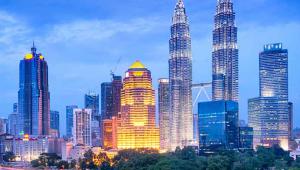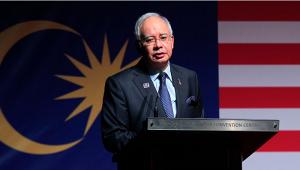By Judith Ugwumadu | 28 October 2013
Malaysia’s prime minister has announced a series of fiscal reforms in his Budget for 2014, including the introduction of a ‘comprehensive and fair’ tax system and improved public spending controls.
In his Budget statement, given on October 25, Najib Razak said a new 6% goods and services tax (GST) would be imposed on the country from April 1 2015. Razak stressed that this new GST was not an additional tax, and, with inflation at a low level, its introduction was well timed.
The top rate of income tax will also be cut from 26% to one of either 24%, 24.5% and 25%. In addition, around 300,000 people would be lifted out of tax altogether.
Razak also highlighted the need to transform public services, spending controls and public audit. A ‘transformation plan’ will be implemented in each government ministry to help strengthen and restructure it and so improve transparency and service delivery.
He added: ‘The government will continue to ensure a strong operating surplus where revenue will always exceed operating expenditure. Emphasis will be given to improving efficiency in spending, prioritising implementation of high impact projects as well as improving auditing methods.’
Currently, government audits are only undertaken after project is completed, but they will now start to be conducted during implementation on programmes valued at more than RM100m ($31.89m).
Elsewhere in his Budget statement, Razak said he expected Malaysia’s fiscal deficit to decline to 3.5% of gross domestic product next year, with revenue bringing in RM224.1bn ($71.13bn).
He said: ‘The government is committed to continue to reduce the fiscal deficit gradually, with the aim of achieving a balanced budget by 2020. The government will also ensure that debt levels remain low, not exceeding 55% of GDP.’
Malaysia’s economy is estimated to grow by 5.5% in 2014 driven by private investment and private consumption, the prime minister said.
He added that the government plans to spend RM264.2bn ($84bn) next year, split between operating and development expenditure.













